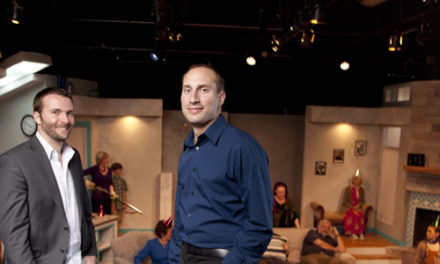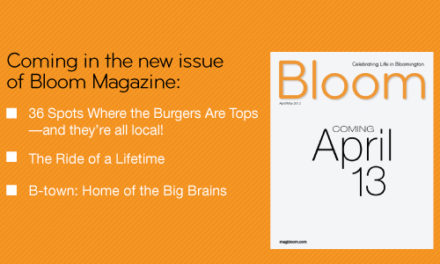
by ALEX CROWLEY
One cannot overstate the impact the national election will have on the Bloomington economy. Despite our best efforts to avoid becoming entangled in the daily drama emanating from Washington, Bloomington’s economic future is intertwined with actions taken across our state and federal government units, whether we like it or not.
Unfortunately, in the near term, our successful emergence from the COVID-19 pandemic will rely in no small part on how effectively the state and federal governments can design, negotiate, and administer ongoing recovery support plans, including the management of testing, contact tracing, and vaccine rollouts. Needless to say, with some notable exceptions including elements of the paycheck protection program, Washington at large especially has not proven itself particularly competent thus far.
Bloomington’s economy—including a handful of major employers, its tourism industry, its cultural nonprofits, and a robust gig economy—has been particularly vulnerable to the economic impact of the pandemic. We have seen the bottom fall out of our downtown economy with the unexpected disappearance of students in the spring combined with local lockdown efforts. At the start of the COVID-19 pandemic, the community hoped and expected to rebound by the fall—an expectation based in no small part on the assumption that statewide and national strategies would be disseminated to manage the health emergency. This has largely not been the case.
While local coordination has been very productive, at the federal level, irresponsible politicization of basic public health actions has threatened a more measured and successful reopening of the economy and educational system, both of which depend entirely upon whether we feel safe leaving our homes.
Bloomington voters would do well to note, as well, the Trump administration’s disregard for—and in some cases downright hostility to—numerous issues of vital concern to our community, including our international student population, the increasing impacts of climate change, issues of racial and economic justice, and the broadening of accessibility to health care through the Affordable Care Act. On top of the ethical implications of these issues, they all affect our local economic recovery and require attention and action in the years ahead if Bloomington is to thrive.
Candidates in the upcoming election should take their cue from the private sector’s shift from shareholder capitalism toward stakeholder capitalism. Corporate interests such as BlackRock, the World Economic Forum, and the Business Roundtable are leading the way. For elected officials, this means moving away from a small subset of their constituencies and interests—i.e., their traditional bases of support—toward a more holistic approach to all constituents and issues.
As the Harvard Business Review recently noted, shareholder capitalism “has delivered economic growth with many important benefits, but it’s also left a path of environmental and social destruction for future generations to grapple with.” It’s difficult not to see parallels with the current federal administration’s policies.
With this in mind, I strongly encourage all of us in Bloomington—no matter our political persuasions—to get engaged in the upcoming elections. Whether or not we can work at the polls or volunteer for campaigns, it is incumbent upon us to familiarize ourselves with candidate policies and, for God’s sake, to vote.
Remember that we all share many more values than we have differences. When we vote, we won’t be doing it for our candidate, we will be doing it in no small part for our beloved Bloomington.
Alex Crowley has been director of the City of Bloomington Department of Economic and Sustainable Development since August 2016. Prior to that, he served as vice president of business operations for Insight Communications and was more recently the founder and managing director of the business consulting firm Excello Solutions. He previously was on the board of directors for Cardinal Stage.















